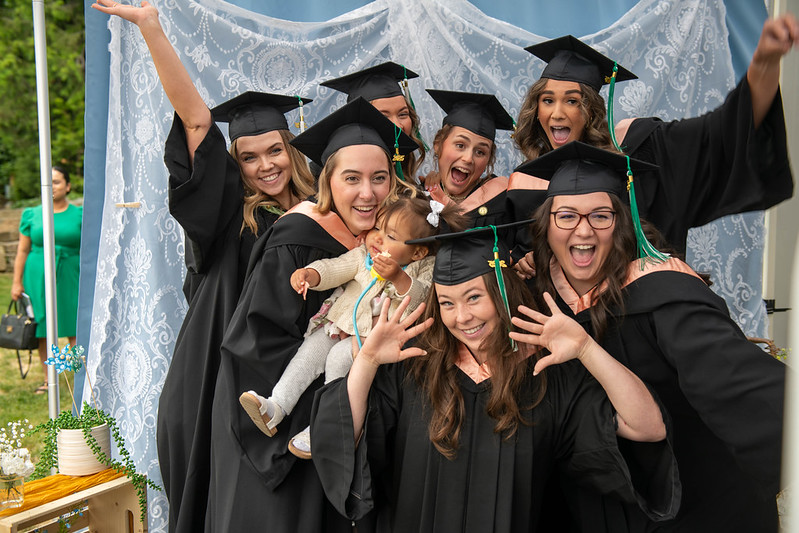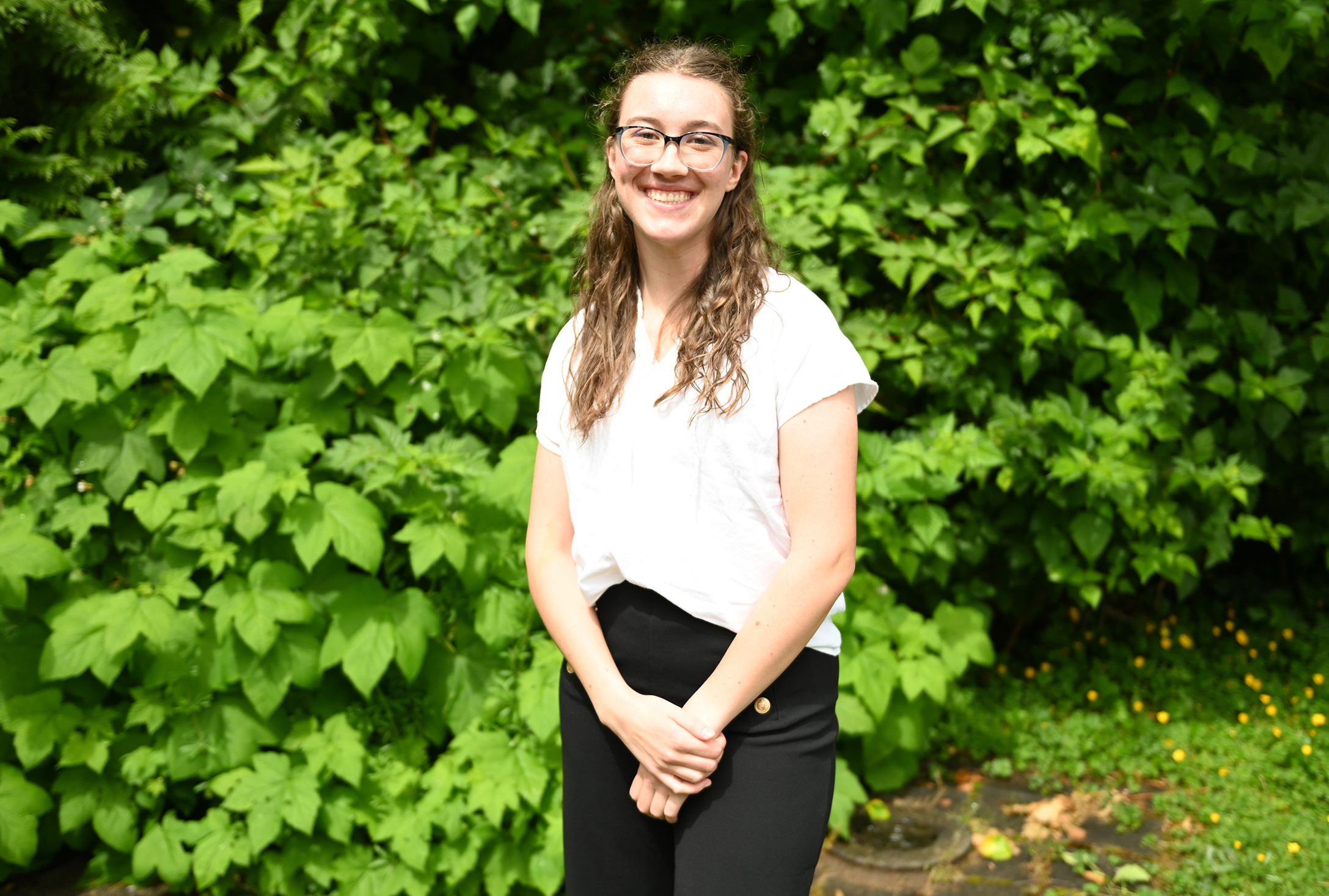UFV helped barista go from steaming lattes to STEM research

When Emily Rettich graduated high school and wasn’t sure what her next step should be. UFV helped her find out, and introduced her to career options within the STEM field.
After a few years off for travel and work in the service sector perfecting her barista skills, Emily enrolled at UFV, working towards a bachelor’s degree in physics.
It wasn’t until her second year that Emily discovered her passion for physics and her draw to theories and experiments rather than just the collection of information. She began a research assistant (RA) position with a primary focus of developing electron schematics.
This eight-month position amplified Emily’s interest in research.
“It was interesting to learn how to do the schematics, and to find out how different parts should be wired and connected to each other.”
Having the opportunity to merge her passion for physics with research, in her third year of studies Emily worked on a complicated particle physics theoretical problem.
The research position began with learning about particle physics, moving to writing out the problem along with computer code to analyze the problem then concluding with charting data results.
“I really enjoyed being able to work on physics over the summer. I usually work café jobs; it’s enjoyable to do something in my field of study.”
Completing a research assignment start to finish encouraged critical thinking and promoted analytical skills through applied learning in addition to expanding field knowledge outside of the classroom.
“The overarching goal of Emily’s summer research was a better understanding of the strong interaction, the force responsible for holding atomic nuclei together. More specifically, Emily was working to calculate properties of hybrid mesons, a collection of subatomic particles conjectured to exist that are actively being searched for by the GlueX experiment at Jefferson Lab in Virginia,” explains Dr. Derek Harnett, a UFV physics professor and Emily’s RA supervisor.
Impressed by the extraordinary work produced, Harnett assisted Emily in applying for an undergrad research scholarship; she was one of five successful recipients. The Canadian Institute for Nuclear Physics (CINP) rewarded the high-level research experience with national recognition, awarding Emily a $5,000 scholarship.
Working as a research assistant offered more than employment. Emily gained valuable skills contributing to career goals while facilitating the exploration of research-related career prospects within her field of study.
So, what’s next for Emily Rettich? She has her sights set on grad school.
“I really want to go to grad school and continue research, working in nuclear power building new kinds of technology that would bring clean energy. It seems like a good way for me to contribute to the fight against climate change, provide more accessible energy and help impoverished countries.”




